
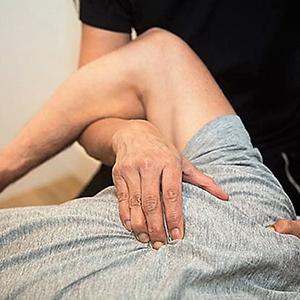
Amatsu is a Japanese form of physical therapy that employs a holistic approach to health, aiming to restore balance to the body. This whole-body therapy targets soft tissues including muscles, tendons, ligaments, fascia, organs, the temporomandibular joint (TMJ) and the sacro-cranial system, providing overall healing and function.
Amatsu is a holistic therapy which supports the re-balancing of key mechanical and energetic structures within the body, including the spine, joints, bones, cranium and meridian points. By promoting alignment and restoring balance, Amatsu enhances the body's inherent capacity for self healing. This approach integrates modern scientific research with ancient Japanese therapeutic principles, utilising techniques dating back over 5000 years.
The impact on the body is not solely due to physical injuries but also the stresses of daily life that can influence the body, but also the stresses of everyday life, which may lead the body to adapt and compensate for resulting tensions and strains. Over time, these adaptions can contribute to the development of ingrained injury patterns, influenced by both physical and emotional factors. Events such as a fall, an accident or emotional trauma can leave lasting imprints on the body and its organs, disrupting the biotensegrity alignment of the body's structural framework. Misalignments resulting from these disruptions may manifest years later in the form of various symptoms, including chronic pain, stiffness, digestive disorders, headaches, migraines, frozen shoulder, sciatica, jaw and TMJ issues. Addressing these underlying patterns is crucial for restoring balance to your body.
Learn More
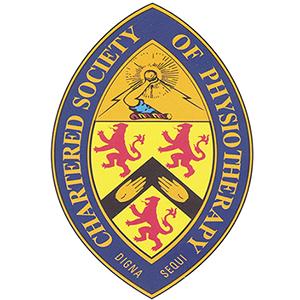
Physiotherapy is a medically recognised scientifically based profession. Treatment is evidence based and is suitable for those who have suffered illness, injury or disability. Specialist Neurological Physiotherapy addresses difficulties with movement and function related to neurological conditions with a focus on maximising potential and quality of life. Treatment is always specific to the individual but is likely to include movement, exercises, manual techniques, education and advice.

Counselling is a talking therapy and is a way to discuss issues and problems in a positive environment. There are a number of issues that counselling can help with such as mental health conditions, distressing events and upsetting life events. Therapy can help you to gain a better understanding of your feelings and help you to find a solution to your problems.
Counselling aims to provide you with a honest, warm and real relationship aiming to establish a safe non-judgemental environment where you can feel confident that you and your concerns are being heard and you are given a space for self-exploration and a chance to enhance self-awareness and confidence.
The relationship is based on trust and truth and your counsellor will see the world through your eyes and help you to make sense of it in your own time and space.
The process is bound by confidentiality, limits thereof and boundaries which have been agreed between both parties.
Learn More

Nutritional Therapy and Naturopathic Medicine looks at more than just food. The discipline interprets the nutrients and other substances in food in relation to maintenance, growth, reproduction, health and disease of an organism and how these can be used to restore health and improve immunity.
Nutritional Therapy considers food intake, absorption, assimilation, biosynthesis, catabolism and excretion. More recently developments in genetic testing allow for more in-depth diagnostic tools for practitioners.
Many bodily functions can be compromised at any age through various forms of stress (e.g. foetal development before birth, caesarean sections, work, familial, relationships, environmental factors).
The discipline considers people as individuals and understanding how food, herbs, genetics and natural medicine techniques such a Traditional Chinese Medicine (TCM), Homeopathy, and Iridology (analysis of the genetic footprint in the iris) can heal us.
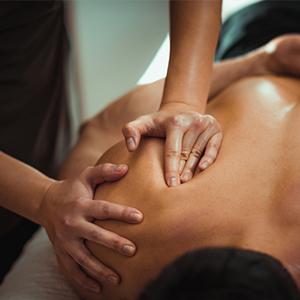
Sports massage involves the manipulation of the soft tissue in the body to help those regularly engage in physical activity. Soft tissue includes the skin, muscle, tendons and ligaments. Strenuous activity will impact this soft tissue, and sports massage helps to correct these issues. As such sports massage can prevent injuries, improve performance and help the recovery process.
Learn More
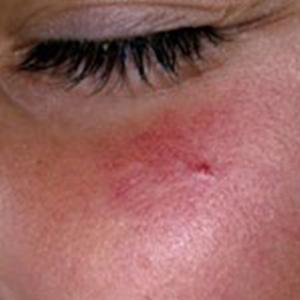
Spider naevi are slightly raised vascular lesions in which small, dilated capillaries rise to the surface of the skin. They typically appear as a red central point with fine blood vessels radiating outward.
Treatment Method
Treatment is performed using a sterile, single use needle that gently penetrates the skin and delivers controlled heat directly to the central point of the spider naevus. This heat cauterises the affected capillaries, causing the non functioning vessels to collapse and gradually be reabsorbed by the body via the lymphatic system.
Following the treatment, a tiny scab may form within a couple of days. The healing process is usually straightforward, with area typically healing within 7-10 days.
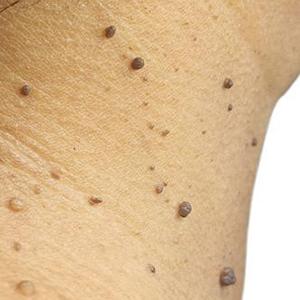
Skin tags are common, benign skin growths that can develop on various areas of the body, most commonly under the eye area, groin, armpits and around the neck.
They typically appear as flesh coloured or slightly darker projections of skin and may be smooth or irregular in shape. Skin tags are usually painless and harmless, though some people choose to have them removed for comfort or cosmetic reasons.
Treatment Method
Skin tag removal is carried out using a sterile, single use needle that delivers a precise electrical current (thermolysis). This controlled heat raises the temperature at the base of the skin tag, effectively destroying the root while cauterising the tissue.
During the healing process, the skin tag will gradually shrivel and darken in colour. a small scab may form within a few days and will naturally fall away as the area heals.
This method allows for targeted treatment with minimal impact on the surrounding skin and typically results in little to no scarring.
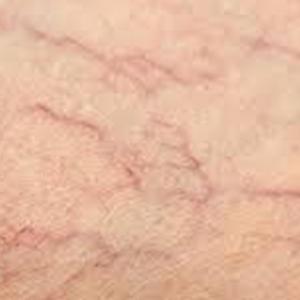
Spider or thread veins - also known as telangectasias, are small dilated blood vessels near the surface of the skin. Although they can occur anywhere on the body, they are most commonly located on the face, around the nose area and legs.
The colour of these veins can vary from red, blue or purple and several treatment sessions may be required depending on the colour, size and depth of the vein.
Treatment Method
Telangectasias treatment is performed using a sterile, single use needle that is carefully inserted into the affected capillary. A controlled electrical current is the applied, generating heat that raises the temperature of the blood vessel and safely coagulates the spider or thread vein.
Following treatment, the cauterised vessels gradually collapse and are reabsorbed by the body. Tiny scabs may form within a few days as part of the healing process. Once these naturally fall away, the treated veins may appear significantly reduced or may disappear altogether.

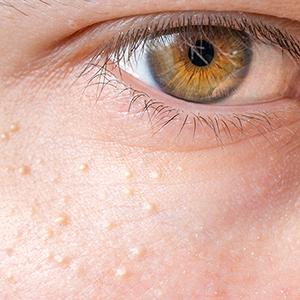
Milia are small, white cysts commonly referred to as 'milk spots' and are often mistaken for whiteheads. Unlike acne, milia are formed by a build up of keratin, a natural protein found in skin, hair and nails, which becomes trapped beneath the surface of the skin.
Treatment Method
Milia removal is carried out using a fine, sterile needle. After a thoroughly cleansed skin,the needle is inserted into the surface of the milia to create a tiny opening. The contents are then carefully extracted with precision to minimise trauma to the surrounding skin.
Following treatment, the skin may appear slightly red or mildly inflamed. This is a normal response and will settle quickly. A very small scab may occur within a couple of days and will naturally fall away as the skin heals.
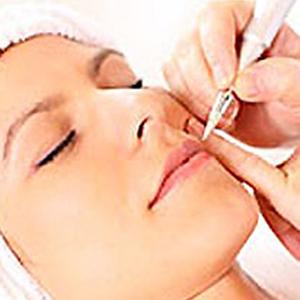
We apologise as our electrolysis appointments are currently fully booked and we are not taking on new clients at this present moment.
Electrolysis is an FDA approved therapy for permanent hair removal. This treatment is an alternative to laser hair removal. Electrolysis works well on light, blonde, grey or white hair on the face and body.
Each individual hair is treated by inserting a tiny surgical probe into the hair follicle and directing an electrical current that heats and destroys the hair's root, which prevents further growth. The hair is then lifted out of the hair follicle with tweezers.
Electrolysis isn't a one off treatment, so after several repeated sessions, the hair is left weaker, thinner and finer and eventually the growth doesn't grow back again.
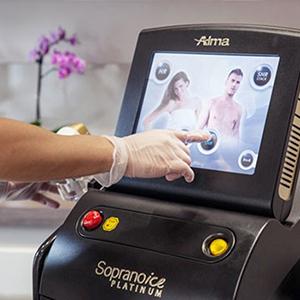
Laser hair removal is a quick procedure which uses powerful laser energy to prevent hair growth. It works by emitting a laser that passes harmlessly through the client's skin and into the hair follicle. The targeted hair follicle is then heated and damaged, thereby inhibiting any future hair growth.
Some clients might feel a mild prickling sensation but the majority experience pain-free laser treatment.
We carry out a consultation and patch test on the skin, which allows us to check to see if your skin is suitable for laser. A small area is tested to ensure that there are no adverse reactions. The skin may appear slightly red straight after the patch test, however this calms down very quickly.
Laser works best on hair growth that is dark and coarse. Popular areas to treat are the face, legs, arms, underarms and bikini line. Treatments can take between 5 to 8 sessions.
Please kindly note that chronic health conditions or terminal conditions such as Cancer are not advised upon by our practitioner.
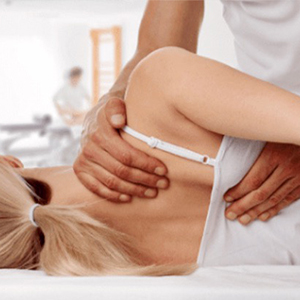
Osteopathic treatment is based on the principle that no part of the body exists in isolation and that the primary focus on the musculoskeletal system (the skeleton, muscles, ligaments and connective tissues) is a key component of overall health and wellbeing. Osteopaths believe that for your body to work well, its structure must also work well, for the aim of the treatment is to restore the body into a state of balance.
Osteopathic diagnosis involves examining muscles and joints using touch, observing posture and the patient's range of movements to detect and diagnose any abnormalities within the musculoskeletal system. Osteopathy treatment includes a combination of muscle and connective tissue stretching, joint articulation, gentle traction and manipulation, deep tissue massage, myofascial release, cranial techniques, exercise and postural advice depending on what the individual requires.
Learn More
It is an osteopath's objective to restore the body to its peak functional ability.
It can contribute to the treatment and management of the following conditions:
The Perrin Technique is a specialist osteopathic technique which has been continuously developed over the last 30 years by Dr Ray Perrin as a diagnostic tool and treatment approach for CFS / ME.
The Perrin Technique is based on Dr Perrin's theory that different stress factors whether that be physical (through postural problems or injury), infectious (bacterial or viral), environmental (exposure to toxins or allergies), emotional stress (work or family) or more usually a combination of these which leads to an overload on the sympathetic nervous system. This in turn results in a build-up of toxins in the fluid around the brain and spinal cord.
The Perrin Technique treatment uses an osteopathic approach designed to manually stimulate motion of the fluid around the brain and spinal cord to encourage better drainage of the lymphatic system. It involves gentle manipulation of the soft tissues and massaging the head, neck, back and chest areas. This promotes healthier functioning of the sympathetic nervous system and the lymphatic system which together helps to alleviate physical symptoms and stressors. Providing the patient doesn't have significant extra stressors over time they should gradually improve and many return to full health and become totally symptom free.
Medical acupuncture, also known as “Western medical acupuncture” or “dry needling” is the use of sterile, single-use acupuncture needles to reduce pain. This is different from traditional Eastern approaches to acupuncture. Current understandings around how this treatment works are rooted in the neurophysiological science of how the brain interprets pain. The use of acupuncture in this way may also reduce local tension in muscles and increase circulation to the affected area which speeds up the healing process.
The process involves pre-sterilisation of the skin before very fine needles are inserted using a special guide tube. This, as well as the acupuncturist's skill at needle insertion ensures that the process is as painless as possible. Some patients feel nothing at all during the needle insertion, however the most common sensation reported seems to be a form of “dull heaviness” felt locally at the area of treatment. Acupuncture often works well alongside other forms of physical therapy, such as osteopathy and exercise prescription.